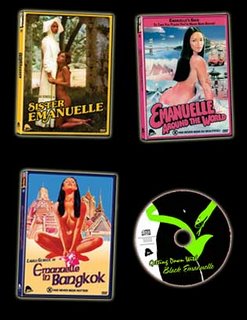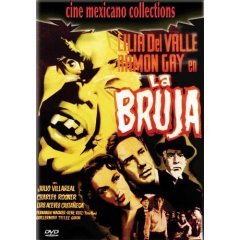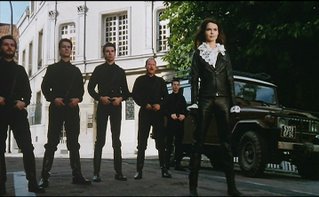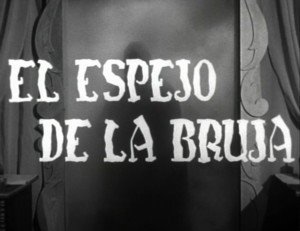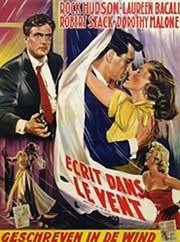
"I was looking for happiness, but I got lost." Laura Gemser in EMANUELLE PERCHE' VIOLENZA ALLE DONNE?
"Come...with Emanuelle," invites the heavy-breathing male narrator on the vintage Jerry Gross Organization US trailer for Joe D'Amato's EMANUELLE AROUND THE WORLD. It's just one of the delightful and pertinent bonus materials on Severin Films BLACK EMANUELLE'S BOX Vol. 1. It's especially eye opening when considering the splice-ridden, blurry trailer vs. the gorgeous new transfer that Severin has given the original EMANUELLE PERCHE' VIOLENZA ALLE DONNE? (1977). After viewing two of the discs and listening to the CD compilation containing three Nico Fidenco "Black Emanuelle" scores, GETTING DOWN WITH BLACK EMANUELLE, my immediate reaction is that this 4000 Unit Limited Collector's Edition box is already a candidate for one of the 10 Best Eurocult DVD's presentations of 2007...and if you are as much of a Joe D'Amato/Nico Fidenco/Laura Gemser fan as myself then it's Christmas in March.
Given the amount of material included on the four discs, along with my preference for shorter to medium blogs rather than epic-length ones, I'm going to split my look at this LE boxset into two separate blogs. First of all, I do appreciate someone at SEVERIN having the wit to call it BLACK EMANUELLE'S BOX, given what we all "think" these films are about. Excellent transfers have become expected from Severin and they continue to dazzle at least myself with these revealing transfers of EMANUELLE IN BANGKOK (1976) and EMANUELLE AROUND THE WORLD (1977). They present convincing new evidence of the multifaceted talents of both the late, prolific and always underestimated Joe D'Amato (rn: Aristide Massaccesi, which he uses in both of these features as his DP credit, more about that later) and the Prince of eccentric Italiano cult music, singer-composer Nico Fidenco.
First, some history: my introduction to Joe D'Amato and the "Black Emanuelle" series came during a 1977 theatrical showing of EMANUELLE IN BANGKOK (US title) which I attended at the Hollywood Theater in Syracuse, NY, one of those old brick and mortars which specialized in showing cult films like George Romero's MARTIN and the ISLA films at Midnight on Saturdays. I paid my one dollar [!...those were the days] admission and expected a repeat performance of the 1974 French film EMMANUELLE, which I had seen and reviewed in a local newspaper a year or two before. What I hadn't realized was that Italian director Bitto Albertini has created the "Black Emanuelle" character of Mae Jordan/Emanuelle in EMANUELLE NERA, his 1975 exploitation of the French film, which became a surprise hit in the US, playing in much more mainstream venues than dollar Midnight movie houses. I found the French EMMANUELLE to be a rather pretty (in terms of cinematography and locations) bore. In other words a pretty stupid X rated film to which I took my girlfriend after we had a few too many one rainy Sunday afternoon. I can't even remember why on earth we went to see EIB a few years later except that it WAS Saturday Night and there had probably been more liquid persuasion. EIB seemed gritty, grungy and much more disgusting (the mongoose and cobra scene sent my girlfriend out of the theater). And, of course, this Emanuelle was a person of color whom I somehow found much more real and appealing than Sylvia Kristel. Of course, the Italian Emanuelle films aren't really related to the French, Spanish (some by Jess Franco), Asian and US films with the name Emanuelle in the title. Joe D'Amato himself makes clear in the Eurofest interview included as an extra on this set that Albertini, himself and Italian colleagues made sure the character's name always was spelled with one M rather than two, like the French heroine's in the competing series based on the novel by Emmanuele Arsan.
In EMANUELLE IN BANGKOK the globe trotting, sexually available photojournalist has somewhat evolved from the kinder, gentler mold in EMANUELLE NERA of the previous year. D'Amato was a much more innovative and daring director than Albertini and gave the character and action a harder edge, including sequences of graphic sex, rape and violence. This would reach its apex in the notorious entry EMANUELLE IN AMERICA (already out in a deluxe DVD ed from BLUE UNDERGROUND). EIB (onscreen title: BLACK EMANUELLE EN ORIENT) is much milder, almost a lighthearted international sex romp compared to ...AMERICA or the other D'Amato directed Black Emanuelle flick in this set, EMANUELLE AROUND THE WORLD. Set in the sprawling Thai metropolis D'Amato doesn't shrink from presenting the crushing poverty of most of the residents seen in the background, and sometimes foreground. There is a lot of handheld, strikingly framed cinematogrphy, none of it is pretty but all of it is extremely effective in efficently setting the tone and atmosphere of its exotic locations without ever relying on "tourist shots" of easy, photogenic targets. D'Amato always admitted that he was a DP first and foremost who just happened to get into producing and directing. The fact that he was the DP on his best films is what often gives them their only distinguised quality.
Voyaging to Bangkok from her New York City base with an achaeologist friend (the late Gabriele Tinti, who was married to Gemser from 1976 to his death in 1991) the credits detail their oceanliner trip by amusingly intercutting them having sex with the movements of the giant pistons driving the ship's engine. There are a lot of canted camera angles of the local architectural wonders and a general sense of fun as a swinging Republican US Senator (are there any other kind?) and his bimbo wife (FIVE DOLLS FOR AN AUGUST MOON's Ely Galleani) join into the sexual hijinx in between encounters of the sleazy kind with local strippers who get into dripping hot candle wax and projecting ping-pong balls from unlikely places... you get the idea.
A strong supporting cast includes the late Ivan Rassimov (charmingly saturnine as always) as the mysterious local politician who gets Emanuelle involved in a plot for a coup, making her the target of a group of thugs who try to change her mind by raping her and then being nice! This, of course, would all be wildly politcally incorrect in today's pop culture and maybe that's part of its fascination. The fact that corrupt US officials are played by such prolific Italian Eurocult regulars as Giacomo-Rossi Stuart (the hero of Bava's KILL BABY KILL!) and Venantino Venantini somehow keeps reminding us that this is after all mid 1970s European Trash Cinema. The action moves to Morocco, where Emanuelle gets involved with more group sex and near rape scenarios. Toward the end Chris Avram (BAY OF BLOOD) shows up as a writer who tries to impose a philosophy on the entire affair.
Severin has given EMANUELLE IN BANGKOK another of its impecabbly detailed and colorful transfers which one has to only compare in terms of resolution and luminousity to the original vintage theatrical trailer to see how much work has gone into this restoration. The 1:85.1/16X9 transfer from generally very good elements (excluding a somewhat lower resolution opening credits sequence and a few fleetingly visible scratches) would probably surprise even its late director. It's the absolute best this feature has ever looked or will look.
As with the other two Emanuelle features in the set, both the Italian and English language tracks are available, along with removable English subtitles. The Dolby Digital presentation of the Mono tracks has remarkable presence and gives the wonderful Nico Fidenco score a chance to assume its primary place over the admittedly risible dialogues. I would recommend watching both of the D'Amato Emanuelles in English with the Italian subs on. It's nice to have the Italian track there but since these films are set initially in the US and have an American main character who interacts with English speaking Europeans and Asians the Italian track sounds strained and artificial in comparison
Along with the original trailer a 12m video interview camcorded at the 1995 Eurofest Convention is included wherein the modest D'Amato is questioned by Mark Ashworth and Adrian Smith. A very genial and laid back D'Amato answers questions about his work. The credits list this as his only English language interview. The video/sound quality is admittedly substandard but watchable, providing some insight into the character of this often misunderstood auteur. Interestingly, the opening and closing credits for EIB and EMANUELLE AROUND THE WORLD are in French, obviously indicating these elements originated in France.
EMANUELLE PERCHE' VIOLENZA ALLE DONNE? (onscreen title: LE VICE DANS LA PEAU) is another D'Amato-directed Black Emanuelle item from 1977, and is more along the lines of the same year's EMANUELLE IN AMERICA in terms of its presentation of scenes of extreme sexuality and violence against women. EIB has its rape scene but this entire feature is built around the concept of rape and sexual slavery as a shameful underside of a societal perversion which thrives on the sexual exploitation and control of women, especially "liberated" women who dress provactively, are intelligent and travel without escort. Once again, top US government officals along with various underclass rapists are part of a worldwide plot involving the abduction of female tourists who are then sent to work in brothels in the Middle East and Asia.
Emanuelle arrives in San Francisco (after having a go with a truck driver in the back of his rig) to investigate and expose the operation. She is greeted by a local journalist (international sex sensation Karin Schubert) who wants "the most famous photo-journalist in America" to help her indict the white slavers. Schubert is brutally raped by the ring's enforcers which only makes Emanuelle more determined. Stopping over in Bombay she meets a world famous Indian guru (frequent D'Amato actor and sometimes screenwriter "George Eastman" rn: Luigi Montefiori), whom she quickly beds and just as quickly exposes as a philosophical and sexual fraud. Moving onto Rome, the Far East and back to New York D'Amato unleashes one gorgeous long lensed impression after another of the exotic locales while allowing Fidenco's increasingly odd musical cues to provide audio counterpoint. The repeated use of Fidenco's song "A Picture of Love" performed in High Bubble Gum style by FIRE FLY has to be heard to be believed, and once you hear it there'll be no forgetting it! I mean that in the most fun sense. But EMANUELLE AROUND THE WORLD is serious stuff when it comes to sexual violence. The sequence involving the sexual humiliation and gang rape of "Miss Ohio", orchestrated by a group of powerful US Senators as "punishment" for her gambling debt, is truly jaw-dropping and takes on a prescient quality in light of high profile news stories of the last few years. D'Amato seems both appalled and a bit amused that the liberal press, with the New York City based Emanuelle as its representative, is ultimately unable to change the system of representation, although she does get some of those responsible (including, in an amusing cameo, D'Amato himself) busted.
The transfer of EMANUELLE AROUND THE WORLD is also 1:85.1/16X9; DD, Mono; English and Italian tracks available, with optional English subtitles. It seems a bit soft during the opening credits before exploding into the most breathtakingly colorful transfer of the set. Resolution and detail are just amazing throughout and the original French elements couldn't be more luminously beautiful. Check out the glowing emeralds, deep ocean blues and hot crimsons of the Bombay guru's palace interiors and tell me if the color and definition isn't as good as any contemporary big budget Hollywood feature film showing at any theater in the US.
Curiously, the EATW disc clocks in at just over 97m, about five minutes short of the 102m listed on the back of the box. I'm sure we'll read more about this elsewhere. Also, I haven't yet seen the XXX Euroversion, but I'll attempt to report any variations after I see it later. It's also has a 102m runtime listed on the back of its box. Remember, this disc is NOT going to be included as part of the boxset. I'm not an expert on this particular title, so if someone can clear up the correct original runtime of the non XXX version please feel free to to do in the comment section below.
The inclusion of a CD compilation of 25 Fidenco tracks from three separate Black Emanuelle features mark the EMANUELLE AROUND THE WORLD double disc as the motherlode of the boxset and worth the price of admission. There are nine cues from EMANUELLE NERA (although the film itself is not in the set), eight from EMANUELLE NERA ORIENT REPORTAGE along with another eight from EMANUELLE PERCHE' VIOLENZA ALLE DONNE? The outre lyrics ans music is all composed and orchestrated by Fidenco and conducted by Giacomo Dell'Orso. The singers BULLDOG perform track 5 "Off Your Body" while SILKY SOUND SINGERS perform "Sweet Living Thing" and "Like a Sailing Ship" is tones that can best be termed...silky.
The coup de grace for me on this double disc, though, is the bonus feature BLACK EMANUELLE'S GROOVE: Interview with Composer Nico Fidenco. For a Euro music collector like myself this is a jam packed 13 minutes of pure joy. Fidenco appears as a impeccably dressed lounge master who, vinyls of the three scores in hand, rapidly and hypnotically takes us through his 40 year and still going career as a songwriter, composer and performer. He's a compulsive talker, charming, self effacing, insightful about his peers. He brackets his work between "technical" assignments like his first score (at the behest of RCA) for the mid 60s Spaghetti Western IN A COLT'S SHADOW and his crazier cues for the 1980s gorefest ZOMBIE HOLOCAUST. He also manages to detail his approach to composing soundtracks for sex films, citing his attempts to present a romantic leit-motif or theme which is then repeated to soften the eroticism and violence. He underlines his basic philosphy as a kind of anti-orchestral minimalism, noting: "When an erotic scene plays to a very sweet, romantic soundtrack, it loses its morbid character." Viva Fidenco! GETTING DOWN WITH BLACK EMANUELLE also comes with a very informative and helpful program insert listing the tracks and their timings. It's illustrated with the original vinyl covers. Fidenco also finds time to squeeze in discussion of his personal memories of D'Amato, Gemser, Ennio Morricone among others. This guy can really TALK!
If all the above weren't enough there is still the fourth disc on this set to consider, the very different in tone SISTER EMANUELLE, also featuring Laura Gemser in the title role. This is directed by Giuseppe Vari and scored by Stelvio Cipriani, a fact which, as we shall see in our next blog, makes a crucial difference. We'll also be considering more of the special bonus features included in the set along with the separately released Severin disc, the XXX European version of EMANUELLE AROUND THE WORLD. Stay tuned...
(c) Robert Monell, 2007



